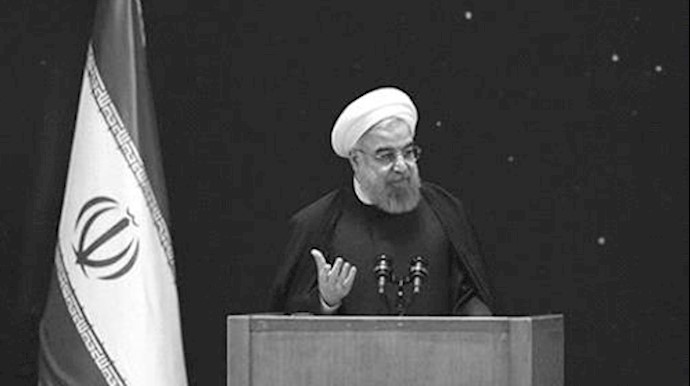by Amir Basiri
Washangton Examiner, May 22, 2017 – The results of the opaque and undemocratic presidential election that Iran held on Friday are in no way a representation of the true will of its people, who made it clear in the past weeks that their real desire is regime change.
However, Hassan Rouhani’s mandate for a second term as president is significant nonetheless.
First, it demonstrated that the infighting in the regime’s upper echelons of power for a larger share of the country’s riches has reached unprecedented scale. And second, it underscored Supreme Leader Ali Khamenei’s mounting fear of social uprisings and rising influence of opposition forces.
What will ensue is more of what we’ve seen in Rouhani’s first term: a broken economy, human rights violations at home, terrorism abroad, and tumorous crises spreading across the regime’s hold on power.
Maryam Rajavi, president of National Council of Resistance of Iran, described the outcome of the elections as a widening rift in the regime’s leadership, which will lead to its ultimate demise. “Rouhani’s second term would only entail growing crisis and a more intense power struggle,” Rajavi said. “Crisis has precipitated at the leadership level of the religious fascism and would continue until the downfall of the regime of the velayat-e faqih (absolute rule of clergy).”
Khamenei, who has final say on all matters of state including the elections, evidently favored Ebrahim Raisi, the cleric who will possibly succeed the ailing Supreme Leader. However Raisi’s violent past worked to his detriment. The regime’s own officials tried to distance themselves from him due to his involvement in suppressing dissidents and his key role in the massacre of 30,000 political prisoners in 1988, most of whom were members and supporters of the MEK opposition group.
The possible repercussions of Raisi’s presidency terrified Khamenei to the extent that he forewent bestowing him the title.
Meanwhile, Rouhani tried to secure his bid by vilifying his opponents and pledging to improve the human rights and economic conditions. But given the structure governing the regime he serves and his own history, Rouhani neither has the power nor the intention of making good on any of his promises.
Rouhani said many of the same things before assuming presidency four years ago. Yet his first term was marked with 3,000 executions, stricter regulations against women in municipal workplaces and further crackdown on freedom of speech and the media.
The resolution of the nuclear standoff and the lifting of sanctions, which was supposed to revive Iran’s bankrupt economy, did nothing to improve the people’s livelihoods. Instead it ended up filling the coffers of the notorious Revolutionary Guards and fueling Iran’s military and terrorist ventures. Iran’s defense minister recently touted Rouhani’s first term as “the most glorious era for the country’s defense and ballistic missile programs.”
Rouhani will also have a hard time resuming his foreign policy tactics, since he is now facing regional and international counterparts who are not impressed by the deceitful smiles of his foreign minister Javad Zarif. Following the elections, U.S. Secretary of State Rex Tillerson called on Rouhani to end Iran’s role in destabilizing the Middle East region and put an end to its ballistic missile testing. Adel Jubair, the Saudi Foreign Minister reiterated that the Iranian regime has become more hostile after the nuclear deal.
The slightest move to fulfill any of the promises he made on his campaign trail will pit Rouhani against the Guards and the Supreme Leader, the true entities who rule the country, a face-off that Rouhani is likely to avoid.
However, the people of Iran will hold him to account and reclaim their rights. And riddled as they are with domestic and foreign crises, Rouhani and his regime are weaker than ever to stifle the people’s voice.
Whether the Iranian regime’s officials label themselves as moderate or hardliner, reformist or centrist, pragmatist or principalist, they’re cut from the same cloth and will be remembered for their common trait: religious fascists who have been unlawfully ruling Iran for nearly four decades. And real change will come when their rule is toppled.
Amir Basiri (@amir_bas) is a contributor to the Washington Examiner’s Beltway Confidential blog. He is an Iranian human rights activist.








